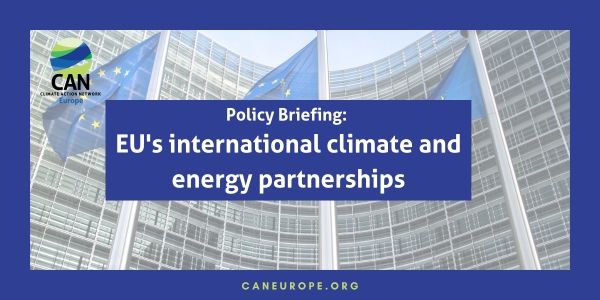Climate and energy transition partnerships are a critical element of the external dimension of the European Green Deal (EGD) and to globally support more ambitious climate action and a socially just green transition in this critical decade. Entering the new EU policy cycle, ahead of decisive international climate policy years with UNFCCC COP29 and COP30, with the submission of new Nationally Determined Contributions (NDCs) in 2025, and amidst escalating devastating climate impacts, is therefore also an important moment to share perspectives on key elements for better harnessing the potential EU climate and energy partnerships with other countries. The European Commission is also said to be working on the release of a new communication on “energy and climate diplomacy” and a “global climate and energy vision” before UNFCCC COP30.
The EU has a wide diplomacy toolbox, from financial instruments (including the EU budget Global Europe Instrument, its climate finance components and more specific initiatives such as the Global Gateway), to its foreign policy institutions (such as the EU External Action Service, EEAS) and in various fields of international policy-making, under the UNFCCC, in relevant energy policy spaces, and beyond. Alongside this multitude of instruments across both EU institutions and member states, there is vast European involvement in international institutions (including powerful weight on the boards of Multilateral Development Banks, diplomatic initiatives and bodies). However, despite this arsenal, the EU is missing many opportunities to coordinate an equitable, just, and globally prosperous climate transition, and to advance lasting strategic partnerships with countries and country groups. Ahead of and during COP28, some new partnerships were formed or additional steps taken within existing partnerships, as CAN Europe analysed.
This policy brief therefore preserves its focus on key parameters for more specific bilateral and regional climate and energy partnerships with EU involvement, but does not speak to all wider aspects of collaborations such as specific trade agreements even though it is clear that EU trade policy too often restricts or contradicts climate policies. But considering these aspects more in detail would go beyond the scope of this briefing. The brief also reflects upon the latest mandates provided for the new EU policy cycle 2024-2029, such as the Strategic Agenda and the Commission President Political Guidelines.




